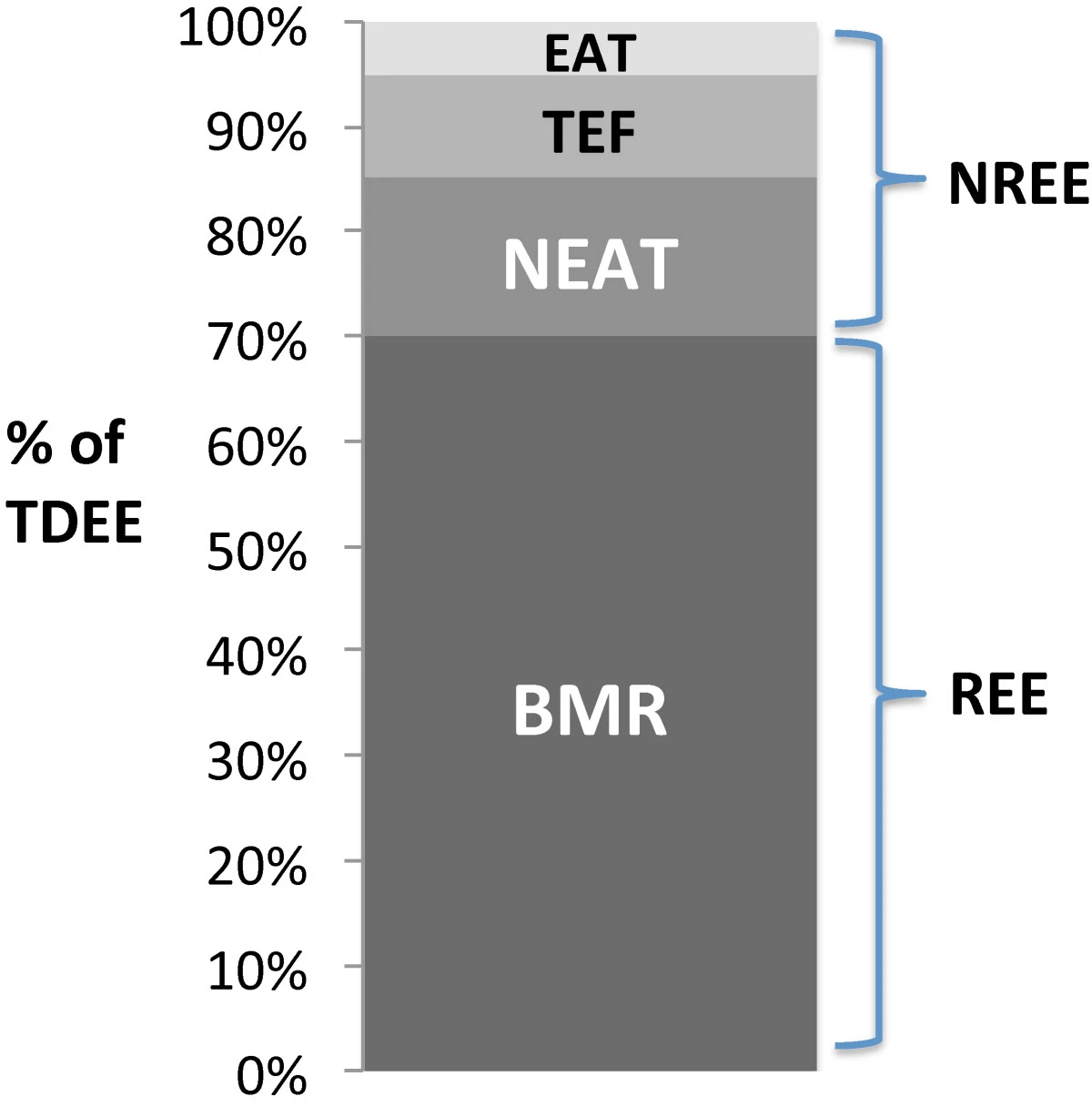Weight loss and chronic illness?

Hi everyone, I was doing ok on my fitness journey last year having lost almost a stone. Unfortunately in January I was diagnosed with ME/CFS and can no longer exercise as it sends me into my exertion zone and I crash. I am really unhappy with how I look and my weight (having gained more than two stone back) so have made small changes with my food to start. But I’m aware that there’s only so much change I can achieve without movement. Does anyone have any experience or advice for trying to lose weight whilst having a chronic illness? Thank you
Answers
-
"But I’m aware that there’s only so much change I can achieve without movement."
I don't think this is true. I'm a believer that weight loss is primarily about how much we eat, not how much we exercise. If you track your calories and stay in a deficit, you will lose weight. You may have to eat a bit less than you did before, but you can do it if you want to.
Just to add, I also have chronic illnesses (celiac and hypothyroidism) and lost weight with little exercise.
3 -
Echoing what Sollyn said, just slightly different words and a lot more wordy, because sadly I'm like that:
Weight loss is all about calorie balance, at its foundation. Get that right, weight loss will happen.
Is it more complicated than that in practice? Sure. Example, only one of many: In order to stick with a calorie deficit, we need to figure out which foods at which times keep us personally full enough and happy enough to stick with our calorie goal long term. What food/schedule that is varies individually.
There's lots more on the practical side, and even more issues if we want to be healthy, not just thinner. But calories are the foundation for weight management, then we build other necessary stuff on top of that to make it achievable, sustainable, healthy, practical, etc.
How does exercise fit in? Well, it's good for health, absolutely. That means any of us ideally will do some, but what's realistic, achievable, and sustainable also varies individually. Personal example: My knees are bad, even though I'm healthy (as long as we ignore, oh, severe hypothyroidism, osteoporosis, mild osteoarthritis in other body parts, sleep apnea . . . 😆). So, bad knees. I'm not going to run, because that makes them worse. So I do other things that don't make them worse. (Some of them aren't super comfortable while I'm doing them, but as long as it's not injuring me, I'm OK with that. Not everyone would be, and they don't need to be. It's aaaalllll individual.)
When it comes to weight loss specifically, all exercise does is let us eat a few more calories while losing at the same sensibly moderate rate. Is that beneficial? Sure. More food, a little more nutrition, maybe a little enjoyment or ability to feel more full more often - good stuff. But necessary? No.
For a typical person exercising typical amounts, maybe half an hour to an hour 5 days a week, those extra calories are a small fraction of total calorie expenditure. Statistics suggest that for the average person, average exercise calorie burn is around 5% of total calorie expenditure. Big whoopie.
Here's a graphic from a research publication, which I'll link below. "EAT" is exercise activity thermogenesis, the calories burned via intentional exercise.
Source:
I'm not suggesting that as a useful general source: It's about athletes, for one thing. But it does talk about how some of the nuances apply to that subgroup. The graphic is just about averages.
Do you see that "TEF" item? That's thermic effect of food, the number of calories the average person burns digesting and metabolizing food, in a normal sort of mixed-macros eating style. It's around 10% of total calories burned . . . twice as many calories as average exercise burns.
NEAT? Non-exercise activity thermogenesis. That's stuff like home chores, job, non-exercise hobbies, etc. Around 15% of total calories burned . . . three times as much as average exercise burns.
That big block, BMR? Basal metabolic rate, the number of calories the average person burns just being alive, completely still, like flat on their back in bed in a coma, not even digesting food. 70%.
Seventy percent . . . way, way more than average exercise burns.
Is exercise useful? Yes. Do some people burn more than 5% of calories from exercise? Sure, but that'd be above average. For regular people, it might go as high as 15% . . . noting that that's only sustainable or practical for someone who's fairly fit already (because fatigue from over-exercise torpedoes total calorie burn, loosely speaking, primarily from fatigue that reduces NEAT because we rest more and move less the rest of the day).
You say "there's only so much I can achieve without movement". Of course there's a limit, but the extra limitation from little or no exercise is pretty darned minimal for us typical people.
There have been people here who are wheelchair users with severe movement limitations who've lost weight. They change how many calories they eat.
I didn't significantly increase exercise - compared to what I'd been doing for a dozen years routinely while overweight/obese - to lose weight, and I lost around 3 stone 8, then have stayed at a healthy weight for 9+ years since. I changed how many calories I ate. (Personally, I didn't even change what I ate particularly much, since I was already a reasonably healthy eater. I changed portions and frequencies of calorie-dense foods, fried the foods less often.)
Exercise is way overhyped for weight loss. Useful? Probably, in most cases. Essential? Nah.
If you get yourself on a manageable, sustainable eating routine at the right calorie level, you'll lose weight. Keep the loss rate sensibly moderate, not much more than half a percent of current weight lost per week - which I'd recommend to anyone/everyone who's not severely obese and under close medical monitoring for nutritional deficiencies or health complications. No one needs nutritional deficiencies or health complications, but it's particularly important for someone with a chronic health condition to avoid those!
You'll do fine.
Sure, if you can, when you can, increase movement in manageable ways, non-dangerous-to-you ways. It doesn't need to be intense. It doesn't need to be frequent or lengthy, especially not right away.
Best wishes for success - you can do it.
4 -
Read what Ann said, then read it again. I find their advice and experience to be spot on.
As for my advice, do what you can when you can, but don't push too hard. I also deal with CFS. Mostly from a Covid infection from 2022 that still causes me extreme fatigue, brain fog, and so much more. It is rough. I am not going to lie. The only exercise I can really do is walking and yoga. Maybe some light weights or body weight exercise. Nothing too strenuous or I will pay for it with multiple days of barely being able to get out of bed. It sucks.
But getting your food figured out can actually also help those energy levels and mood. I know when I eat better, I feel better overall. So I would 100% focus on that over the rest.
3 -
Thank you all for your comments. I feel more positive knowing that I am not as limited as I previously thought
3 -
Good - because you CAN achieve your goals, and believing you can is a good first step.
Not gonna lie, it won't be easy every second - it isn't for anyone - but it's achievable with patience and persistence. Make a sensible, moderate plan, and you'll increase your odds of success.
If you continue with MFP, and feel up to it, maybe come back to this thread and let us know how it's going for you? I'd love to see your progress, and it makes me happy to hear about others' success with their health goals.
Best wishes!
2 -
Losing weight with a chronic illness can feel extra tough, but small, steady changes can make a big difference. Focus on what your body can handle instead of pushing too hard. Gentle movement—like walking, stretching, or low-impact exercises—is often better than intense workouts. Nutrition matters most: balanced meals with lean protein, fiber, and healthy fats keep energy stable. Hydration, sleep, and stress management also play huge roles. And don’t forget—progress may be slower, but that’s okay. Work with your doctor to make sure any plan is safe and fits your condition. Think sustainable, not extreme.
0
Categories
- All Categories
- 1.4M Health, Wellness and Goals
- 397.5K Introduce Yourself
- 44.3K Getting Started
- 260.9K Health and Weight Loss
- 176.3K Food and Nutrition
- 47.6K Recipes
- 232.9K Fitness and Exercise
- 459 Sleep, Mindfulness and Overall Wellness
- 6.5K Goal: Maintaining Weight
- 8.7K Goal: Gaining Weight and Body Building
- 153.4K Motivation and Support
- 8.3K Challenges
- 1.3K Debate Club
- 96.5K Chit-Chat
- 2.6K Fun and Games
- 4.6K MyFitnessPal Information
- 16 News and Announcements
- 19 MyFitnessPal Academy
- 1.5K Feature Suggestions and Ideas
- 3.1K MyFitnessPal Tech Support Questions




